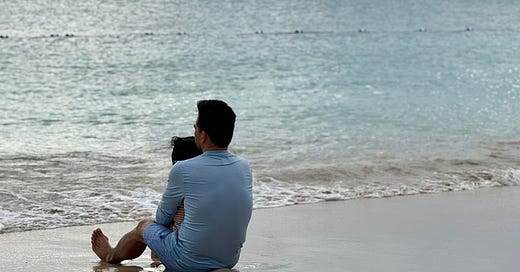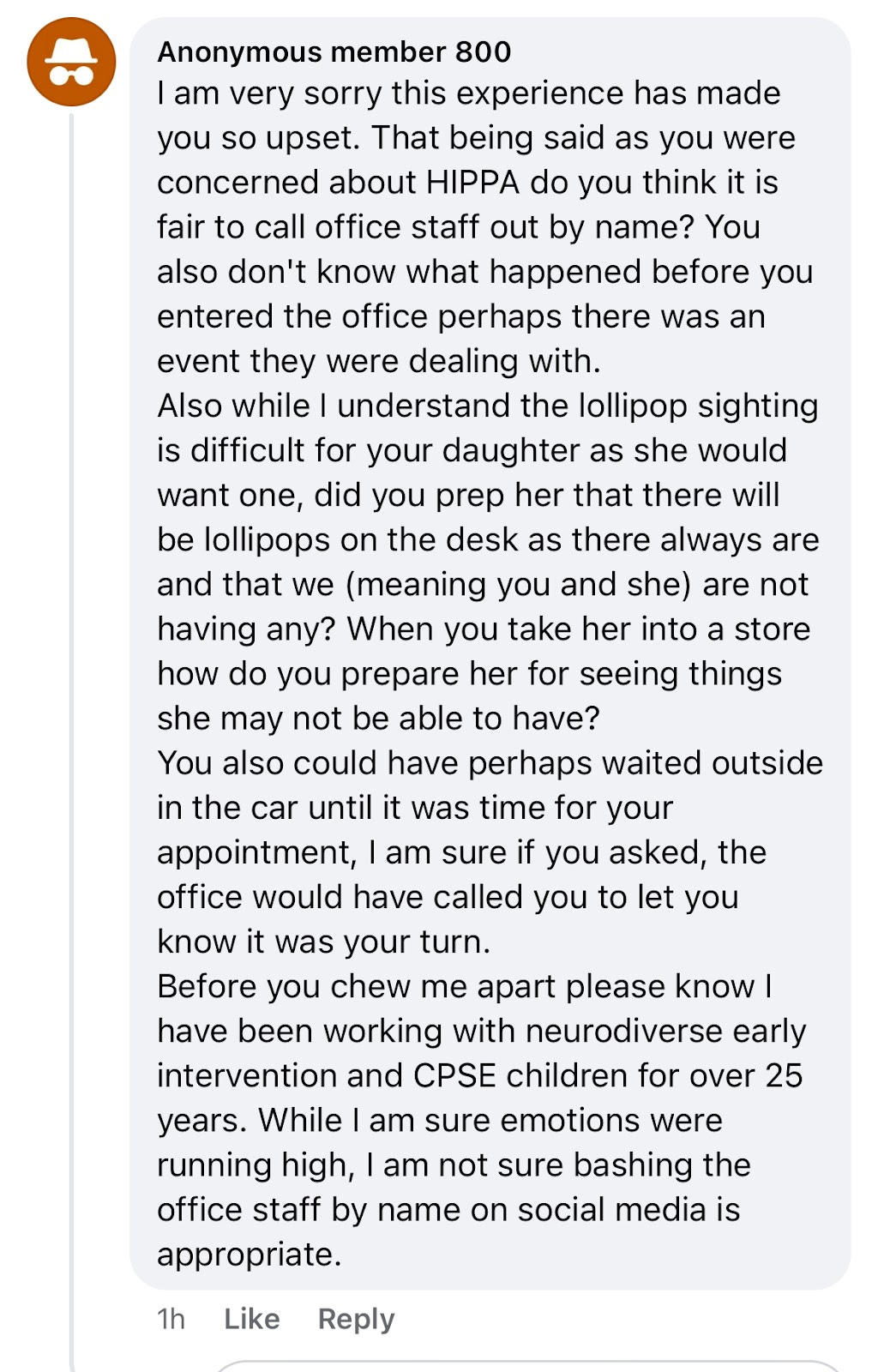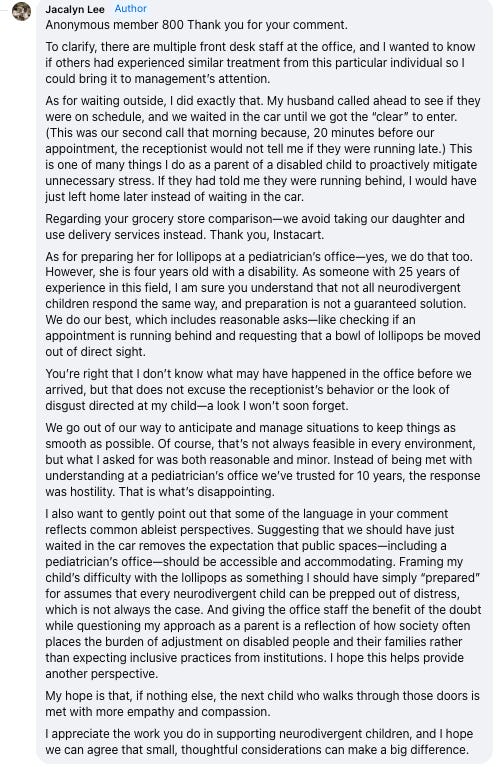Oof, it’s been a minute since I last posted.
Quick life update: I was asked to guest speak on a couple of panels about neurodiversity, spent Spring Break in St Lucia, am in the final stretch of finally launching a non-profit…and started a new job. It’s been hectic…but in a good way, even if I feel overwhelmed sometimes.
One thing I’ve been wanting to expand on is that unfortunate doctor’s office experience I recently shared. That week, I was so upset that I did something I don’t usually do—I posted about it in a private local Facebook group asking if anyone else had experienced something similar at that office. If so, I wanted to make sure the regional manager knew so it wouldn’t happen again to another family.
It’s always a little stressful putting yourself out there (says the person who writes about navigating life with an atypical child—ha), but the responses were overwhelmingly supportive. Except for one anonymous poster…who I’m pretty sure works at the pediatrician’s office.
I wanted to share that person’s comment as a “learning opportunity”—an example of how ableism can show up, even when people don’t intend it. The silver lining in this experience, I suppose. Let’s break down what’s wrong with this comment:
Minimizing a Parent’s Experience.
Starting off with “I am very sorry this experience has made you so upset” is the same as the non-apology of “I’m sorry you feel that way.” (Nod your head if you’ve ever been annoyed when someone says this instead of a simple “I’m sorry.”)
It’s dismissive and invalidating…and shifts the focus to my emotions rather than the actual situation itself.
Placing Responsibility on the Parent + Child.
The suggestion that I should have “prepped” Isla about the lollipops and the comparison to a store visit completely ignores the reality that some children with disabilities have sensory or impulse-control challenges that make these situations uniquely difficult.
It also assumes that I didn’t prepare Isla (which I did) or that preparation alone would solve the issue. It oversimplifies the real, complex challenges atypical families face every day.
For the record, we generally avoid bringing Isla to stores because of the aisle of candies found by checkout areas. One of the many things we do to mitigate situations like this. Thank god for Instacart!
Suggesting Isolation.
Telling me that we “could have waited outside in the car” implies that atypical families should remove themselves from public spaces rather than expecting accommodations or understanding from the environment. An environment that was the pediatrician’s office, no less.
This is a common way ableism manifests: by subtly suggesting that the burden of adjustment should fall on disabled people and their families. To be clear—I am realistic about the world we live in (especially with the current administration)—but I still believe in the power of driving change, even in small ways.
Also, for the record, I did wait in the car with Isla while my husband Rio called the office a second time to double-check before I went in.
Credentialing as a Shield Against Criticism.
This ending—”before you chew me apart”—uses experience in special education as a defense. If this person was in special education, then they should’ve known that if they’ve met one person with a disability, then they’ve only met one person with a disability. It’s not a monolith…especially when it comes to Autism.
And while expertise is 100% valuable, it doesn’t negate the possibility of still having an ableist perspective or, frankly, ignorance. (Don’t even get me started about the occupational therapist who told me that Isla could “grow out of Autism.”)
Defending the Office Without Acknowledging the Parent’s Perspective
While the poster criticizes me for naming the receptionist’s first name publicly (which might be a fair point), it assumes that I didn’t consider any context of what might have happened before arriving. Essentially, it gives the benefit of the doubt to the office staff…but not the parent advocating for their child.
So what did I do?
Before I even had a chance to respond, someone else in the Facebook group chimed in and admonished them. #grateful.
Here’s the post I ended up writing in response:
At the end of the day, a lot of us unconsciously hold biases—particularly against marginalized groups. But that doesn’t mean we have to stay that way.
By recognizing our own biases, challenging them, and opening ourselves up to diverse perspectives, we can grow. That anonymous poster didn’t respond to my comment—but I hope they read it. And I hope they learned something.







Wow 🤩 your response was so beautifully written and eloquent. Beyond that, you approach everything with such grace and kindness. Your point about the world: how our disabled child must adjust to the world’s “rules” rather than the world being open to make space for our children. I find it’s the not my autistic child and her special needs that is the most challenging part of all this. It os the world around her that is the hardest element to deal with. Wanting her to conform to its space. The silent or not so silent judgement, the stares, the looks of disgust, the eye rolls, etc. I thank you so much for shining light on these topics. Truly, you’re awesome.
I’m so happy I found your Substack! Your voice is powerful, clear, and so needed. Thank you for putting words to what so many of us have felt but couldn’t always articulate. I’ll be following closely as a mother in the trenches alongside you. If you’d ever like to be a guest on my podcast, I’d love to have you on the show.